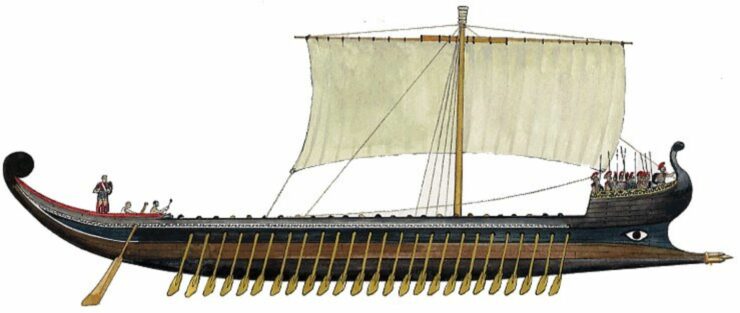RMA Dissertations
“The ships themselves understand the thoughts and minds of men”
A study into the ancient Greek dichotomy between fearing the sea and daring to traverse it by studying ships as living entities
Gerben Hospers
See full text in the UU repository
Ancient Greeks showed a dichotomous attitude towards the sea. The sea was seen as both a source of life, but also as a dangerous and whimsical place characterized by uncertainties. No aspect of ancient life was devoid of religious significance and seafaring formed no exception. Therefore, divine guidance was deemed necessary by the seafarer to accumulate enough trust to traverse the stormy seas. This thesis addresses a psycho-religious approach in solving the dichotomy between fearing the sea and daring to sail it by studying the possibility of seeing the ship as a living entity that safeguarded seafarers from the dangers the sea posed. By applying the concept of ‘power object’ to the ship, I attempt to further our understanding of the role of material culture in the seafarer’s quest for divine guidance. It will be posed that the ship was seen as a living entity imbued with divine powers, bordering on the sacred, that broke the homogeneity of the sea. As a result, we should reconsider the clear distinction between objects and humans, as this study shows that ships were as much an actor in gaining confidence to sail the Mediterranean as the ancient sailors themselves.


